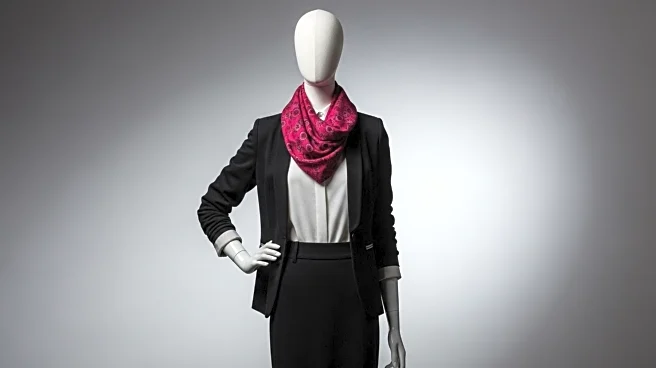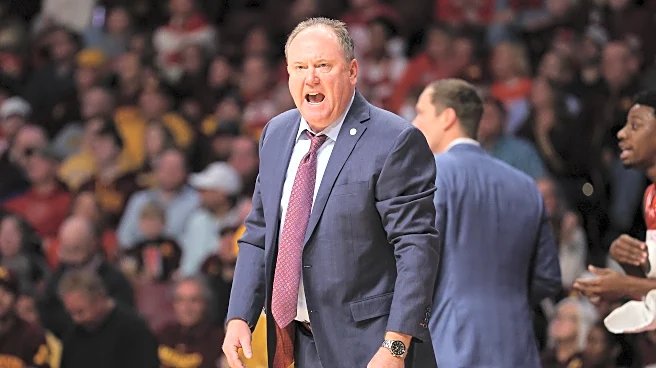What's Happening?
Laura Weir, the new CEO of the British Fashion Council, emphasizes resilience as a key leadership trait in navigating the fashion industry's challenges, particularly in light of new tariffs imposed by President Trump. These tariffs affect key manufacturing regions like China and Vietnam, impacting brands such as Prada and Nike. The British Fashion Council is working with the UK government to advocate for tariff-free entry of UK fashion goods into the U.S. market. Weir's leadership focuses on maintaining strong relationships with American counterparts to mitigate the tariffs' impact on the industry.
Why It's Important?
The imposition of tariffs on fashion goods highlights the interconnectedness of global trade and its impact on industries. For the fashion sector, which relies heavily on international supply chains, these tariffs pose significant challenges, potentially leading to increased costs and reduced competitiveness. The British Fashion Council's efforts to address these issues underscore the importance of international collaboration and advocacy in navigating trade barriers. The situation also highlights the need for resilience and adaptability in leadership, as industry leaders must find ways to sustain growth and innovation amid economic uncertainties.
What's Next?
As the fashion industry grapples with tariff challenges, companies may need to explore alternative supply chains or adjust pricing strategies to remain competitive. The British Fashion Council's ongoing dialogue with U.S. counterparts could lead to policy changes or new trade agreements that alleviate some of the industry's burdens. Additionally, the focus on resilience and adaptability may drive innovation in business models and operational strategies, as companies seek to mitigate risks and capitalize on new opportunities in a changing global market.











